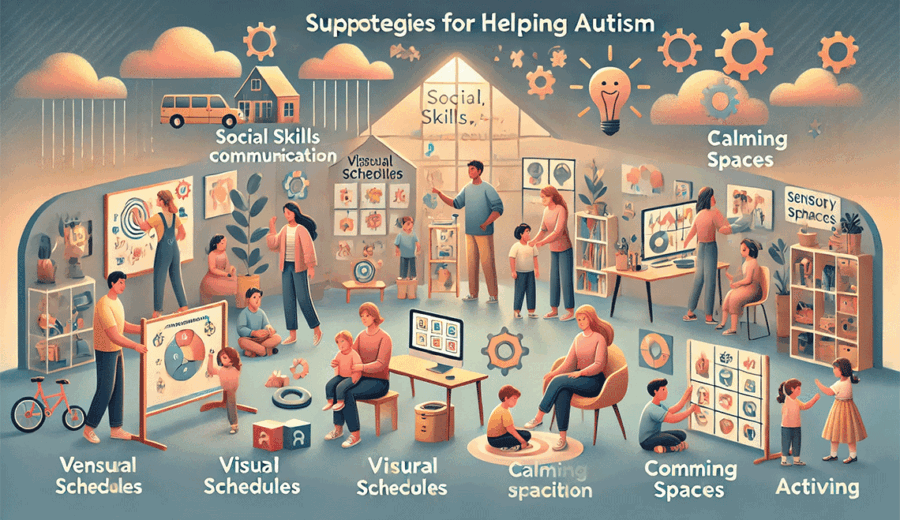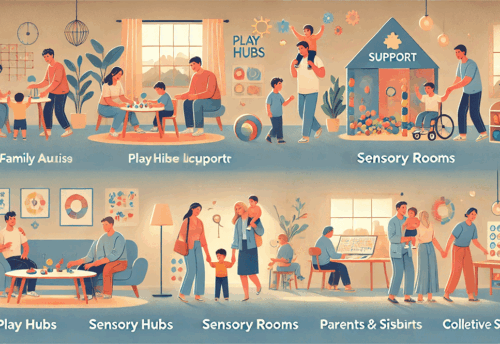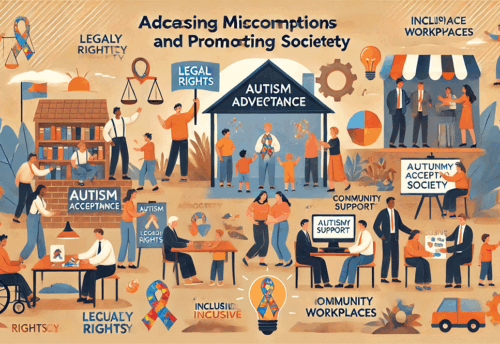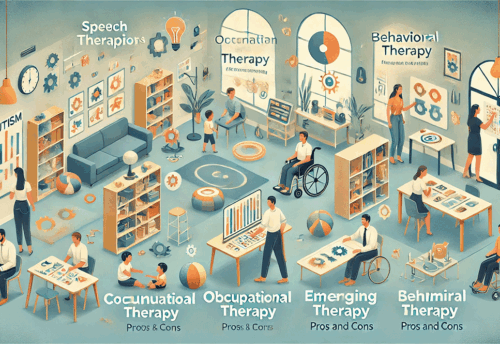
November 28, 2023
Supporting Individuals with Autism
Supporting Individuals with Autism
Providing the right support for individuals with autism can make a profound difference in their development, well-being, and quality of life. Here are some practical tips and techniques for parents, teachers, and caregivers to help autistic individuals thrive.
Tips for Parents, Teachers, and Caregivers
- Use Clear and Consistent Communication: When giving instructions or explaining situations, keep communication simple and direct. Visual aids like pictures or charts can help reinforce spoken language and make communication clearer.
- Create Predictable Routines: Structure and consistency can be calming for many individuals with autism. For example, establishing a morning or bedtime routine can help reduce anxiety and increase confidence in daily activities.
- Be Patient and Flexible: Every individual with autism learns and communicates at their own pace. Allow extra time for responses and be flexible in adapting methods that suit their unique needs.
Techniques for Promoting Social Skills, Communication, and Self-Regulation
- Encourage Social Interaction Through Play: Games and cooperative activities, like taking turns or working on a group project, can help children practice social skills in a relaxed setting.
- Use Visual Schedules: Visual schedules help individuals understand what to expect, reducing anxiety around transitions. For instance, a school teacher might use a visual timeline for the day’s activities, allowing the student to follow along.
- Teach Self-Regulation Techniques: Introduce simple techniques like deep breathing, counting, or having a “calm-down” space. This empowers individuals to manage overwhelming situations independently.
The Role of Sensory-Friendly Environments and Structured Routines
- Create Sensory-Friendly Spaces: Spaces designed with soft lighting, noise-reducing features, and access to sensory items like weighted blankets or fidget toys help individuals with sensory sensitivities feel comfortable.
- Use Structured Routines: Structured environments provide a sense of safety, especially in educational settings. Teachers can help by organizing classrooms with designated areas for quiet work, group activities, and sensory breaks.
Supporting individuals with autism through clear communication, sensory-friendly environments, and structured routines promotes positive development and independence, enhancing their capacity to thrive in various settings.





Leave a Reply